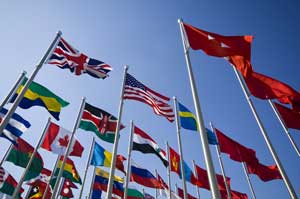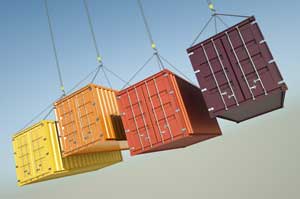
The laws of importing for countries when dealing with global trade compliance are diverse. This can be a confusing and challenging process, but governmental agencies like The U.S. Customs Border Protection and its subsidiary organizations require customs brokers and importers to be aware of and abide by the rules of importing into the country. This is one of many reasons to work with a broker when importing.
What is distinctive to customs acquiescence is that its accountability is not just restricted to staff in the distribution or procurement departments of a corporation. Customs trade acquiescences are the legal responsibility of an entire corporation impacting everyone from logistics, money, research and advancement, sales, distribution, manufacturing, legal, and management of every head office and trade division. However, many corporations see acquiescence with international trade laws and global trade compliance policy as an overwhelming job weighed down with insurmountable hurdles and complications. Here are a few things you should know.
Product Classification

Product Classification is the most critical stage when deciding to import. As an “Importer of Record”, you are held accountable for the classifying of your commodity. Additionally, learning some of the background of the Harmonized Tariff Schedule of the United States (HTSUS) will assist you when you need the proper procedure of the General Rules of Interpretation (GRIs), for the listing progression to documenting your process for commodity classification.
Free Trade Agreement
Free Trade Agreements (FTA) are a manageable option for minimization of responsibility outlays for a company. However, the significance is in the understanding of the FTA as a company’s procedure for formulating eligibility for FTA utilization under the countless regulations. The FTA will support when making decisions in determining commodities’ eligibility for duty free treatment. However, preferential trade programs are two-pronged with the possibility of bilateral agreements contracted among countries to allow commodities to come in duty-free or at a lesser price. These agreements seem to directly influence the underlying cash of a company, and are often associated with compliance snags that only a customs broker can help in identifying which makes these programs advantageous to the companies. Continually reviewing existing commodities to make sure they are still possible under the appropriate FTA are recommended.

Incoterms 2010®
Incoterms 2010 are a set of three-letter standard trade terms most commonly used worldwide in international and domestic contracts for the sale of goods. However, they can be misinterpreted and also improperly used in shipping contracts. Understanding the use of Incoterms 2010 is important when controlling and supervising a company’s supply for purchasing and sales procedures. Incoterms are vital to a company’s commodities industry when exporting from the U.S. with the weight on export categorization and encrypted controls.
AFC International, LLC. can assist your company with the complexity of global commerce and will skillfully analyze your company’s multinational business model. We quickly and effectively help companies maximize operations and strategies while overcoming conformity goals.


Leave a Reply
You must be logged in to post a comment.